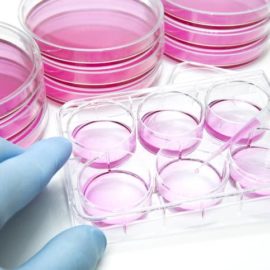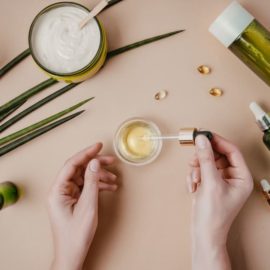The use of plant stem cells in skin care is revolutionizing cosmetics and pushing the boundaries of what nature and technology can do when combined. In a context where cosmetics companies are increasingly leveraging technological tools applied to botanical sciences, plant stem cells in skin care are able to address consumer preferences for natural ingredients that are both efficient and sustainable.
Studying plant stem cells in skin care represents a relatively new development for cosmetic science and builds on the presence of powerful compounds in plant stem cells, which can have several positive impacts for beauty products. However, plant stem cells are not only used in skin care for its cosmetic benefits, but for its positive effect on the environment.
Content
Plant stem cells in skin care and the one-health movement
As we’ve mentioned above, the use of plant stem cells in skin care is a relatively new development in the cosmetic field operating at the intersection of science, technology and nature. In fact, this advancement speaks directly to several healthcare movements that have taken place in recent years, among which the term biohacking stands out. This expression refers to achieving health benefits by applying small changes in daily routines as well as using technology-enabled products. This field is expected to grow at a compound annual growth rate of almost 20% in the next few years.
Along with this one-health concept to which biohacking responds, the well-aging movement in beauty has been particularly active in applying cutting-edge scientific discoveries to product developments(such as cellular senescence). This speaks directly to well-informed consumers that are eager for innovations that target their specific needs in an effective and sustainable way.
Always closely watching developments in the global cosmetic industry, at Provital we have gone a step further and coined the term “dermohacking” as a blend between dermocosmetics and biohacking, to refer to a new well-aging approach that leverages technology, science and natural consumer preferences to push the boundaries on efficacy and sustainability for the beauty industry.
Altheostem™: plant stem cells targeting well-aging
When looking to add to the well-aging narratives and plant stem cells in skin care, Provital developed Altheostem™ as its first dermohacking ingredient. A new biotechnological plant ingredient with senolytic activity in dermal fibroblasts that effectively prolongs the skin’s youthful and healthy state.
The ingredient presents a powerful senolytic effect able to rebalance the senescent cell population to an earlier age in a dermohacking effort that harnesses the eternal power of plant stem cells.
Specifically, Altheostem™ is obtained from lab-grown stem cells of the flower petals of Althea rosea and generates a new dermohacking path that selectively hacks skin senescence.
It is not surprising then that this ingredient showed significant in vivo efficacy in multiple aging sign indicators, including healthy skin glow (+8,5%), elastic recovery (+16.8%), less skin sagging (-18,6%) and biological elasticity (+17,9%). Moreover, in an effort to continuously advance in blending technology and cosmetic science, an AI-powered analysis revealed that after treatment with Altheostem™, the apparent age of volunteers was over 3 years less in comparison to the placebo group.
As a non-GMO, traceable and ethically-sourced ingredient, Altheostem™ represents a powerful ingredient to match companies’ efforts aligning with new consumer preoccupations regarding the environment and cosmetic efficacy.
No comments yet
There are no comments on this post yet.





Leave a comment